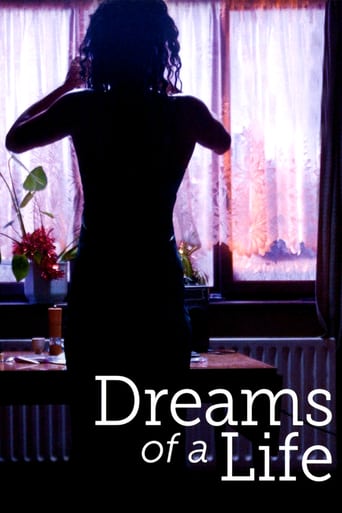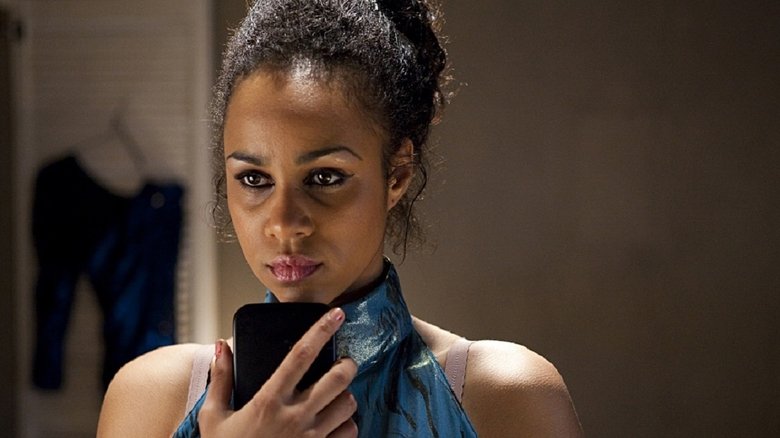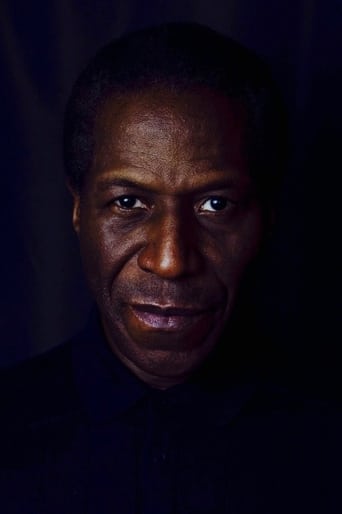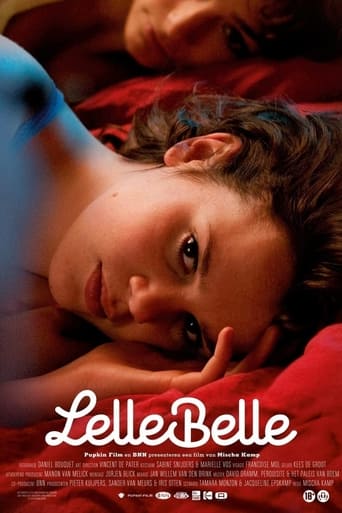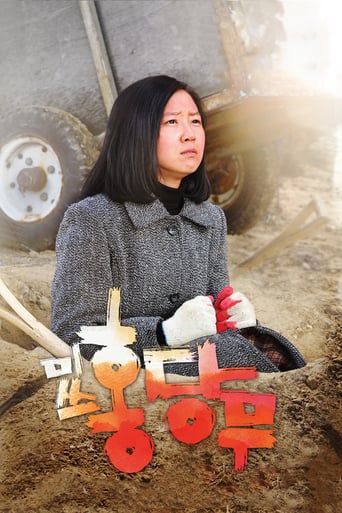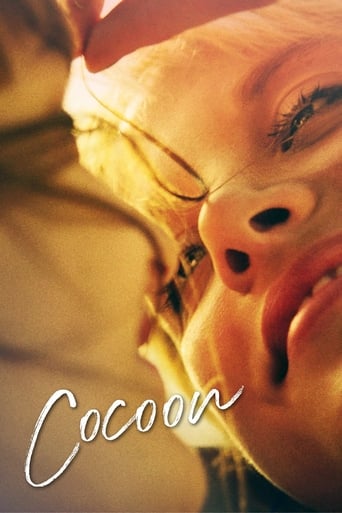Dreams of a Life (2011)
A filmmaker sets out to discover the life of Joyce Vincent, who died in her bedsit in North London in 2003. Her body wasn't discovered for three years, and newspaper reports offered few details of her life - not even a photograph.
Watch Trailer
Cast
Similar titles
Reviews
How sad is this?
This is one of the few movies I've ever seen where the whole audience broke into spontaneous, loud applause a third of the way in.
While it doesn't offer any answers, it both thrills and makes you think.
I enjoyed watching this film and would recommend other to give it a try , (as I am) but this movie, although enjoyable to watch due to the better than average acting fails to add anything new to its storyline that is all too familiar to these types of movies.
The story of an 'Eleanor Rigby' - but, a real one - right amongst us.Living in NYC, the story of Joyce Carol Vincent wasn't known here, but, this film - DREAMS OF A LIFE - make her, her story all too real.While watching, I (as I'm sure, many others) compared their lives to that of Joyce's.We all live isolated lives - some more-so than others.But, the story of Joyce Carol Vincent (who, pardon me - I feel I must say her full name - as a 'remembrance'), is so similar, yet, so different than what we most feel. Or, is it that we convince ourselves we're 'different?' The voices of this film - which the filmmakers had painstakingly researched as much as they could - is told through the words, remembrances of a few people who knew Joyce Carol Vincent.She kept her life - her relations with people - compatmentalised - a 'trait' (?) she got from her family (though Joyce Carol Vincent has 4 sisters, and - at the time of her passing - BOTH parents were alive - they did not take part in this film, nor was where Joyce's final resting place is told).Joyce had told her friends her mum had died when she was 11 years old.The truth was Joyce's mum WAS alive, and did not die until a year or so after Joye's death.The part of this film that really 'walloped' me, was the very ending - the very last shot.I'm not revealing anything by saying it's film of Joyce Carol Vincent; it's the WHERE the footage is from that really just blew me away.It would be great to say that seeing this will make 'us' take those in our lives closer to our hearts.But, I'm a realist.But, for Joyce Carol Vincent, this film serves as an eternal flame.
In January of 2006, the severely decomposed body of a woman was found in a bedsit flat above a shopping mall in the Wood Green district of North London. By pathology, it was determined that she had remained undiscovered for approximately three years. Her body was surrounded by Christmas presents, and apparently, she died in the process of wrapping them. The television set, which sat in one corner of the room, had been left on the entire time. The virtually skeletal condition of the remains meant that she could only be identified by comparing dental records with a photograph of her smiling. Her name was Joyce Carol Vincent, and at the time of her death, she was thirty-eight years old. Although the grim discovery would be mentioned in local newspapers, details regarding Vincent's personal life, including a picture of her, were noticeably missing.Due to the state she was found in, a specific cause of death could not be determined, and the coroner recorded an open verdict. It remains unknown to this day, although it's strongly believed that she died of natural causes. Filmmaker Carol Morley read Vincent's story in the daily tabloid "The Sun" and was haunted by the questions it raised. Now I am, too. How is it possible that the local council, the housing association, and the utility companies didn't notice mounting unpaid bills? How could her neighbors attribute the stench of decaying flesh to dumpsters? Why were the police unwilling to delve any further into the case? The official explanation, according to what Member of Parliament Lynne Featherstone was told, was that there was nothing to answer to in terms of foul play. How they figured out Vincent wasn't murdered in the first place has not been made entirely clear.Morley has channeled her fascination with this story into "Dreams of a Life," a morbidly curious, deeply tragic, strangely compelling documentary constructed entirely from hearsay. It shows that Vincent's life was just as much of a mystery as her death; the scraps we're fed about her are provided by interviewees that at best knew her superficially. Listen to them talk, and you'll repeatedly hear them qualify their statements with phrases like, "I think," "I believe," "Maybe," "I seem to remember," and, "It could be," among many others. It would appear she never let anyone get too close to her, which is ironic given the fact that, by all accounts, she was a beautiful woman and had a fairly active social life. She would ultimately lose touch with everyone, and by the time her body was discovered, many of her former friends and acquaintances didn't initially realize the tabloids were referring to the woman they knew.The interviewees were found only after Morley placed an ad with various publications and internet sites. We see the ad printed on the side of a black cab: "Did you know Joyce Carol Vincent?" Even then, it took months to get a response. Of the people Morley features, three stand out as the most interesting. One is Martin Lister, who met Vincent in 1985 when he worked negotiating client renewals for a shipping company; Vincent was twenty at the time and was his boss' secretary. They would date for three years and then sporadically keep in touch until 2002. The last time she was in his life, he claims, she was staying in his flat and was seemingly in some kind of trouble. He says that she knew every inch of the city, having moved at least once a year. He learned very little about her, although he recalls her telling him about her Indian mother, who died when she was eleven, and her African father, a carpenter. This contradicts what was published, namely that her parents were from the Caribbean.Another featured subject is Catherine Clark, who befriended Vincent when they were renting a room in the home of musician Kirk Thorne. She wasn't surprised when she learned that Vincent had spent some time in a battered women's shelter, for she knew that Vincent had attracted many men into her life. Perhaps her isolation towards the end of her life had something to do a controlling boyfriend. This could account for why her older sisters, who allegedly raised her following their mother's death, were only briefly seen during Vincent's inquest and didn't want to participate in this film. And then there's Alistair Abrahams, a former music manager and Vincent's ex-boyfriend. He too describes a beautiful, fun woman who never shared her past. He recalls when they attended a Nelson Mandela tribute concert in 1990 and how she shook Mandela's hand.Just about everyone in the film expresses disbelief and guilt over not knowing something had happened to her. They don't understand how the woman they knew – a happy, bubbly spirit with a beautiful singing voice and aspirations of being a pop star – could have possibly ended up in a bedsit and died alone. Morley attempts to fill some of the gaps with strategically placed reenactments, which feature Zawe Ashton and Alix Luka-Cain as the adult and child versions of Vincent respectively. It was reported that Vincent was medically treated for a peptic ulcer, and so Morley depicts her looking gravely ill and doubling over in pain the night she died. Perhaps it happened that way, and perhaps it didn't. "Dreams of a Life" raises a lot of questions, but the most important is: How is it possible for someone to slip through the cracks in today's fast-paced, technologically innovative, socially centered world?-- Chris Pandolfi (www.atatheaternearyou.net)
STAR RATING: ***** Saturday Night **** Friday Night *** Friday Morning ** Sunday Night * Monday Morning Joyce Vincent's skeleton was found in her London bedsit three years after she died, surrounded by wrapped Christmas presents and with the TV still on in the background. Despite once having a fairly active social life, she clearly masked deep rooted insecurities to those around her, some of whom provide talking head perspectives here. These may have driven her to make some bad decisions and mix with the wrong people, drifting apart from those who really cared about her. Film maker Carol Morley attempts to piece together the events leading up to her death, trying to create a picture of who this woman was and how she came to meet such a lonely, desperate end.It's testament to what a crazy, twenty four hour news world we live in that Joyce Vincent's story, as mind blowing and heart breaking as it is, is the type of thing you could read about in some rag like The Sun and then just put to the back of your mind faster than Jack Robinson. But however much you think about it, the idea of a woman lying dead in her home for three years with not a single friend or family member coming round to check on her or noticing she was gone will always make you wonder what kind of world we're living in, especially with so much more to hand than in years gone by.As off putting as the thought of it is, the tone of the film should really be as dark and down beat as it can be, since it's such a desperately sad, shaming true life tale, but of course this would make it inaccessible to some, and it works more that Morley balances her work with more soulful, melancholy interludes in between the more dour, desperate moments. We learn of a confident, bubbly woman who could be the life and soul of any party, but who clearly carried deep, dark insecurities around with her and who failed to display much of a personality of her own, preferring to latch on to the close friends and people she had around her.With the limited amount of material she has to work with, new comer Zawe Ashton brings Joyce to life in as colourful and under stated a way as she can, always at her best in alone, private moments when her passion and talent as a singer really comes to life, only for nothing to come of this. As Robert De Niro once stated in a film of his, there's nothing sadder than wasted talent and while these are very wise words, the film shows how a vulnerable, insecure personality can inadvertently make this so.Morley has crafted a haunting, desperately sad tale that shows even in the 21st century we still live in more of an atomised, apart society than we'd care to admit and that maybe we don't care about each other as much as we ought to. ***
An utterly pointless, self-indulgent and thoroughly depressing slice of hotchpotch investigative journalism. This film ought to be avoided if at all possible. It seems as though the filmmaker became so carried away with her success at uncovering those ties and relationships the police and the authorities in their 'run of the mill' investigation failed to discover that she thought it warranted an entire 95min film on the matter. The result is an odd, empty and protracted examination of the life of somebody who seemed to have, quite simply (, horrific though it may be,) slipped through the net, rather than an examination of existential concerns over death, mortality, solitude, unaccomplished dreams and most importantly the beauty of a life that was left for so long without the ties that would have led to it's commemoration. What was the filmmaker trying to accomplish here? Firstly one gets the impression that the drive behind the film is almost a sense of overwhelming injustice, a sort of primal cry for the remembrance of another person who was left for so long and in such a way. However after a while one realises that the film runs very short on material and instead of examining the beauty of a forgotten existence it obsesses and makes assumptions on its demise. Why then make such a film? If the motivation for it was the anomalous circumstances and sense of horror, unease and injustice felt by the fact that Joyce Vincent lay dead for three years in her apartment without anyone in the entire world realising; that someone in today's society (, someone who wasn't too far off being similar to you and I,) could vanish into solitude and ultimately death, then surely a film about her and her life should serve to recall her story in a more celebratory fashion.A dreadful film.
